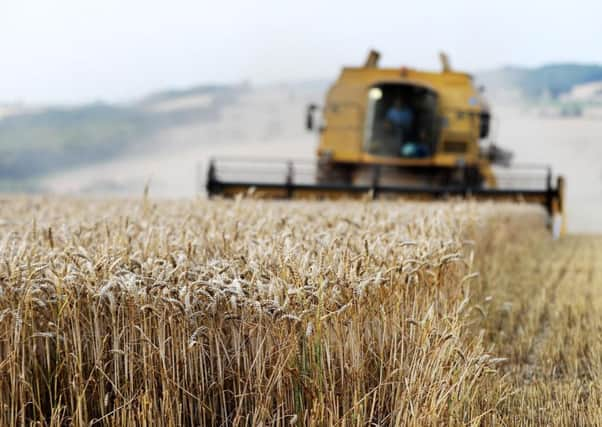Wildlife and robots reveal tricky path to farming’s future


Even the briefest glance at the programme for next week’s Oxford Farming Conference is enough to know that this is an event bound to divide opinions.
Among the subjects on the agenda are “a vision for farming with robots in 2050” and an Oxford Union debate starting from the premise “this house believes that green energy is not worth the carbon it takes to produce”.
Advertisement
Hide AdAdvertisement
Hide AdOn Wednesday, the OFC will also unveil its latest piece of research and while it’s keeping its powder dry in terms of the detail, it has admitted it’s braced for a backlash.
OFC co-chairman Adrian Ivory said: “Driving the debate will be the OFC’s sixth piece of industry research which investigates the structure, processes and relationships needed to establish a truly competitive UK agriculture sector beyond the next decade.
“The research report we’ve commissioned is likely to be controversial, because it highlights the need for changes to how farms are operated and funded, some of which will be unpalatable to those who prefer working within the status quo.”
There will be various representatives from the region among the keynote speakers, including Guy Poskitt, who over the last 30 years has turned a 600 acre family farm in Goole into a 6,000 acre enterprise with a turnover in excess of £30m employing over 300 staff and Tom Rawson, director of the Dewsbury-based dairy business Evolution Farming.
Advertisement
Hide AdAdvertisement
Hide AdHowever, all eyes are likely to be on Environment Secretary Owen Paterson, who just before Christmas left many campaigners disappointed when he failed to make sweeping changes to the way farming is funded under the Common Agricultural Policy.
Following an extensive consultation carried out by Defra, it concluded there was a significant public appetite to see a slice of the billions invested in British agriculture each year diverted towards those farmers who most protect wildlife and the landscape it inhabits.
Up to 15 per cent of the overall budget can be used to reward environmentally friendly practices and many conservation groups believe the move is vital if endangered species are to be protected.
However, in a recent announcement Mr Paterson stopped a little short of what many campaigners had hoped for, announcing that the amount of funding transferred from farmers’ direct payments to the budget for environmental and rural growth schemes would be increased from nine per cent to 12 per cent.
Advertisement
Hide AdAdvertisement
Hide AdThe policy will be reviewed again in 2016 when it is hoped the full 15 per cent can be spent on environmental schemes but some experts believe that will be too late to save some species.
Mike Clarke, the RSPB’s chief executive said: “We have received thousands of expressions of support from the public calling for a countryside richer in wildlife. This is important to the public, including many wildlife friendly farmers.
“Owen Paterson and Defra have planted some of the seeds needed for the recovery of threatened species of farmland wildlife, like the skylark, marsh fritillary butterfly and turtle dove. But as any farm will tell you, these seeds need a lot of nurturing to get the greatest yield.
“While the deal falls short of what we wanted and what nature needs we will continue to work with the large number of progressive farmers to help protect the farmed environment and prevent the ongoing decline of many threatened species.”
Advertisement
Hide AdAdvertisement
Hide AdThe organisation insists a successful farm business and protecting environmental concerns are not mutually exclusive. It cites farms like Birkdale run by Stephen and Joceline Gibson in North Yorkshire where the couple have encouraged rare plant species through the Cornfield Wild Flowers project.
As a result more than 100 species of bird have been recorded on the farm including barn owls, grey partridges, turtle doves, a thriving population of tree sparrows and spotted flycatchers, while restored hedgerows have provided cover for nesting birds, berries and insects.
Mike Clarke added: “The Government has made its own job of meeting environmental commitments harder and must reassert its determination to ensure that a large proportion of public money is directed towards a healthy and vibrant countryside, rich in wildlife, to which we all have access.”
The Oxford Farming Conference will take place from January 6 to 8. For more details visit www.nfuonline.com.